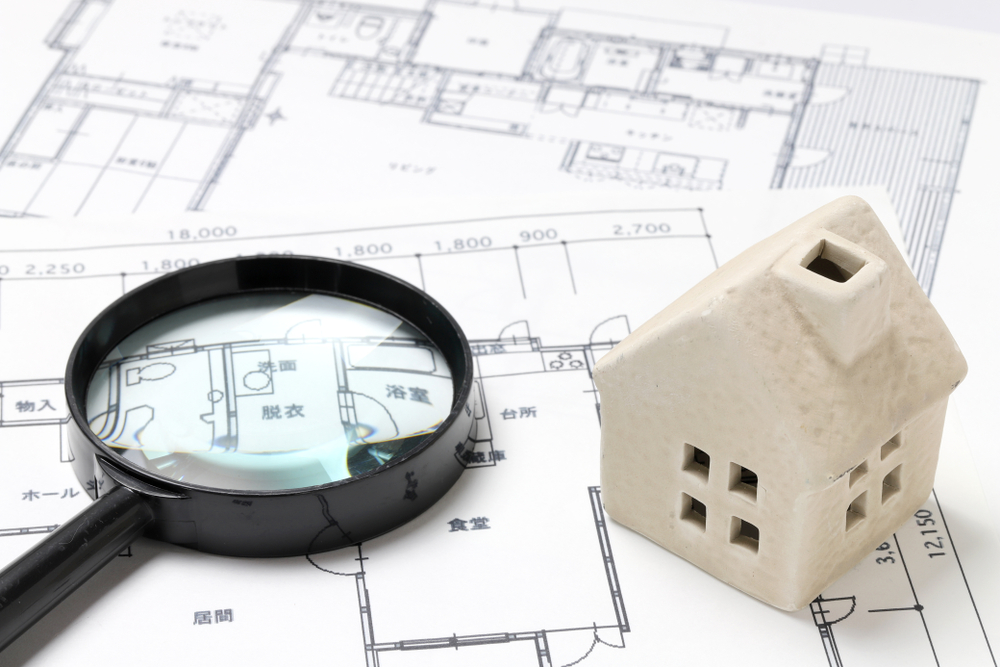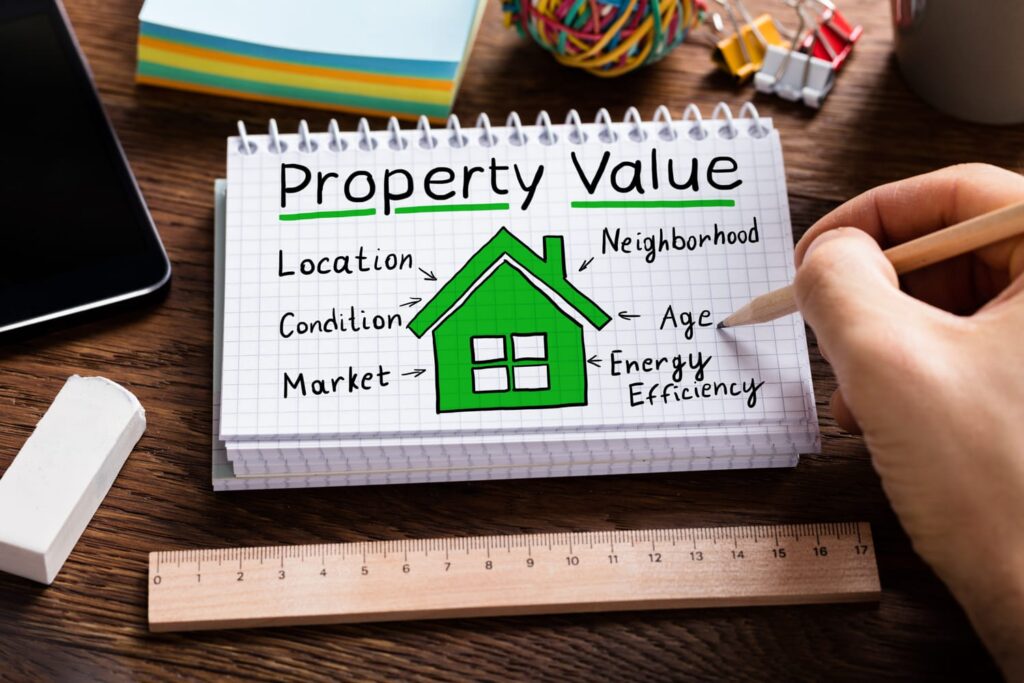Real estate property evaluation requires a thorough and strategic eye to determine its current and potential value. As an investor or homebuyer, arming yourself with the knowledge to conduct a robust property assessment enables prudent decision-making when selecting real estate. This comprehensive guide explores all integral facets of property valuation.
Pinpointing an Ideal Location
A property’s location signifies the very foundation influencing its desirability and valuation. Prime locations offer inherent growth opportunities, dynamic neighborhoods, proximity to shops and restaurants, recreation sites, renowned school districts, and modern transportation arteries. Assess crime rates, economic health and development plans when evaluating neighborhoods. Location sets the stage for fostering a convenient, safe and engaging lifestyle.
Measuring Walkability
In real estate, “walkability” represents the ease of strolling to nearby amenities and establishments. Metrics like “Walk Scores” grade neighborhoods on pedestrian-friendliness. Properties situated in highly walkable areas with well-connected sidewalks, parks, shops and public transit retain substantial value for their sheer convenience. Walkability promotes healthier lifestyles by encouraging outdoors activities over vehicle use.
School Quality
Families with children place high emphasis on school systems when evaluating real estate. While niche websites comprehensively rate districts on metrics like test scores, grad rates and offerings, also connect with administrators on district strengths, parental participation and learning atmosphere. Beyond performance indicators, ensure sports programs, band, languages and other extracurriculars align with your child’s needs and talents to augment their educational experience.
Community Characteristics
Vibrant neighborhoods offer an array of perks enhancing day-to-day living. When showcasing amenities, consider recreational sites, shopping malls, cultural attractions like museums and performance theaters and community events. Ensure essential establishments including grocery stores, medical clinics, places of worship and service providers are accessible. Evaluate green space, outdoor sports facilities and family-friendly venues.

Transportation Accessibility
Convenient transportation enables connectivity between neighborhoods and surrounding regions. Properties located near major highways and roads with direct airport access retain their resale value for sheer accessibility. Additionally, proximity to central transportation hubs and light rail expand mobility options. Walkability, bike trails and public transit should also be weighed based on commuting needs.
Employment Hub Proximity
Minimizing commute times remains pivotal for metropolitan workers. Thus, home values tend to climb within reasonable distance to dense employment corridors and large corporate headquarters. Tech hubs, business parks, universities and hospitals represent major economic centers. If relocating for a job, ensure your neighborhood sits within comfortable driving distance.
Air Travel Convenience
For frequent fliers, an international airport’s proximity is a major asset increasing home resale potential. Properties situated near airports allow domestic and global travelers to minimize ground transportation. Consider noise levels and flight path trajectories when purchasing near air travel hubs. Accessibility, short travel times and transportation savings render real estate surrounding airports extremely valuable.
Evaluating Community Safety
When seeking neighborhoods, many homebuyers prioritize security and crime rates. View local police reports and connect with law enforcement to gauge crime trends. Ensure adequate street lighting, neighborhood watch programs and community policing initiatives are implemented. Consider gated entries, security systems and cameras based on safety preferences. State, county and city crime maps exist to compare and pinpoint secure areas.
Quality Lifestyle Offerings
While property evaluation assessments concentrate on tangible amenities, also evaluate intangible lifestyle qualities when selecting neighborhoods. Gather indicators on access to healthcare facilities, air/water quality reports and cultural offerings like museums and performance venues. Community events calendars showcase enrichment opportunities. Review city lifestyle rankings and accolades to gauge liveability standards influencing real estate markets.
By concentrating on these integral facets of property valuation, investors and homebuyers alike secure optimal real estate aligned with personal aspirations. Savvy assessments expand beyond surface-level home features to encapsulate location, community conveniences, transit accessibility, safety and neighborhood culture cultivating fulfilling lifestyles.

Frequently Asked Questions
What is the meaning of property evaluation?
A property evaluation comprehensively examines a home or building’s features and surrounding location to estimate current market value and resale potential. Evaluations establish reasonable listing prices and inform investment decisions.
How do you evaluate the value of a property?
To evaluate property values, research recent neighborhood sales trends and comparable listings with similar attributes. Conduct site visits to gauge home conditions influencing valuations like size, age, renovations and layout. Additionally, examine location, transportation access, school systems, amenities, city development and economic projections.
What is the difference between an appraisal and an evaluation?
While appraisals and evaluations both assess real estate value, appraisals feature detailed on-site inspections and represent official reports meeting industry standards for purchase approvals. Evaluations offer more cursory value approximations to establish competitive market pricing.
What to consider in property evaluation?
When evaluating real estate, inspect foundational elements including square footage, age, layout and flow. Also examine stylish finishes, modern systems and outdoor spaces. Location remains pivotal, including transportation proximity, school quality, neighborhood offerings and development plans influencing value.
What does it mean to evaluate a house?
Evaluating a home requires methodically assessing its structural integrity, layout and finishes as well as exterior elements like landscaping and outdoor living potential. Additionally, connect the home’s specs and condition to comparable neighborhood sales to estimate market value based on demand and buyer competition.
How do I find out what my house is worth?
Combining online price calculators and comparative market analyses with professional appraisals offers home valuations based on location, market competition and unique property attributes. Local real estate agents specialize in trend analysis, tapping intricacies distinguishing value.
How do you determine the market value of a property?
Professional appraisers determine market valuations through comparative market analyses of nearby “comps” with similar specifications recently sold. Adjustments are made for property condition, upgrades, lot sizes and location variables. Economic trends, inventory levels, days on market and price cuts also signal real-time buyer demand central to pricing strategies.
Getting Property Evaluation Assistance
Navigating the intricacies of property valuation requires keen attention to detail and market expertise. While on-site assessments concentrate on structural elements and finishes, location-based factors including walkability, school systems, neighborhood amenities, transportation access, economic health and safety metrics all influence value.
Quantifying such qualitative factors remains complex. Pinpointing growth opportunities while sidestepping hidden issues can overwhelm even seasoned investors. Without professional guidance in property evaluation, homebuyers also risk overpaying for properties or selecting less-than-ideal neighborhoods.
Working with a qualified Realoq agent specializing in property evaluation analysis, you reap extensive benefits:
- Comprehensive Market Research: Realoq agents combine analytics with insider community insights to showcase listings aligned with client aspirations, lifestyle needs and family considerations. We remain actively engaged with planning committees and developer groups to predict shifting dynamics influencing valuations.
- Property Assessment Expertise: Our agents complement online tools with experience-backed perspective to evaluate home conditions, weigh renovation potential and gauge competitive value factors relative to the subset market. Detail-driven comparable analyses remove pricing guesswork.
- Network of Trusted Partners: From reputable lenders to savvy home inspectors, we assemble teams of specialists to secure optimal terms while eliminating acquisition risks. Our referral network supplies transparent guidance each step of the way.
- Negotiation Mastery: Proficiency in assessing property value empowers agents to negotiate advantageous offers aligned with market trends. We secure favorable terms and cushions to safeguard investments against shifting conditions.
By selecting Realoq, clients gain end-to-end guidance and analytical rigor to optimize returns and enjoyment for years to come. Connect with our property valuation specialists to determine accurate pricing and identify value-aligned listings suiting your real estate dreams.


